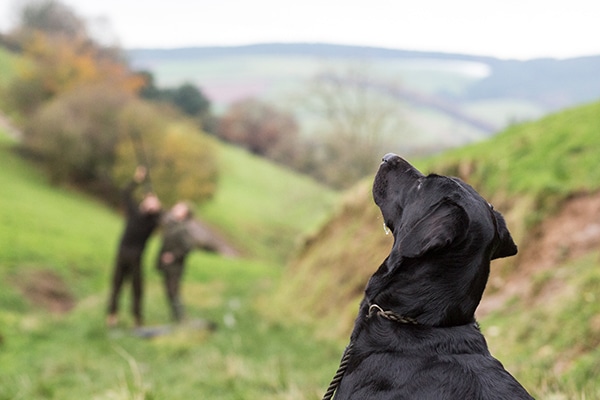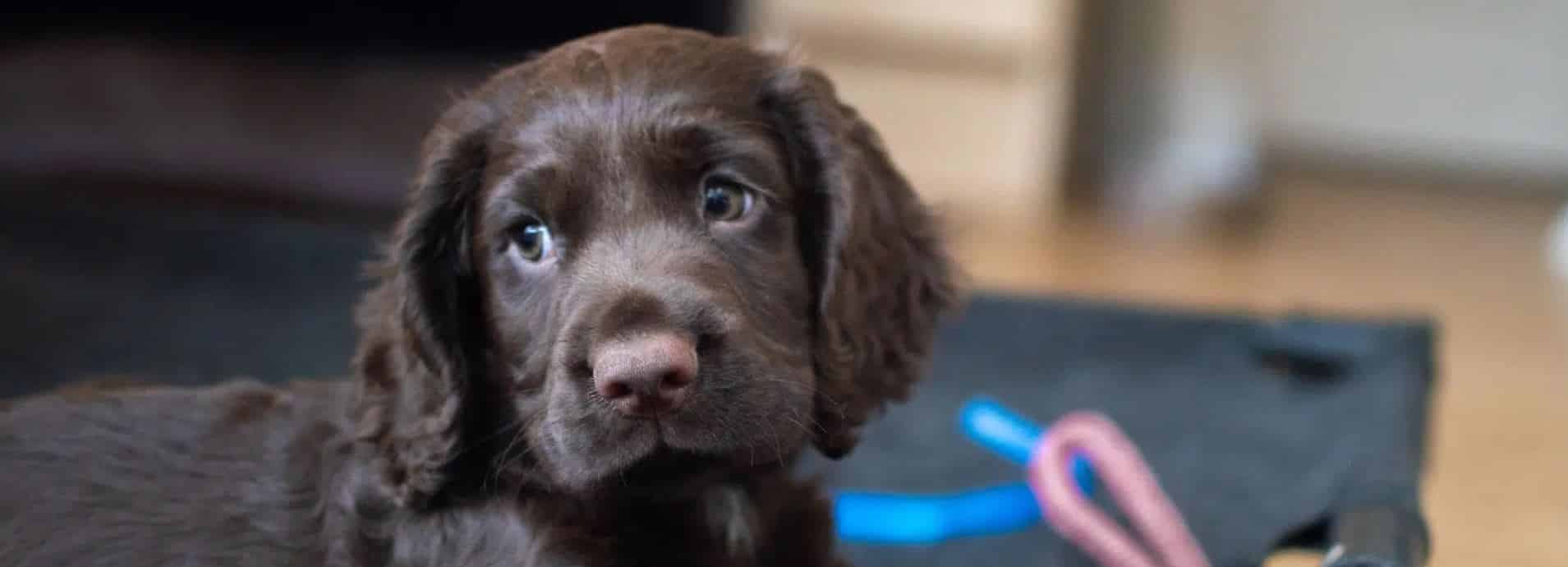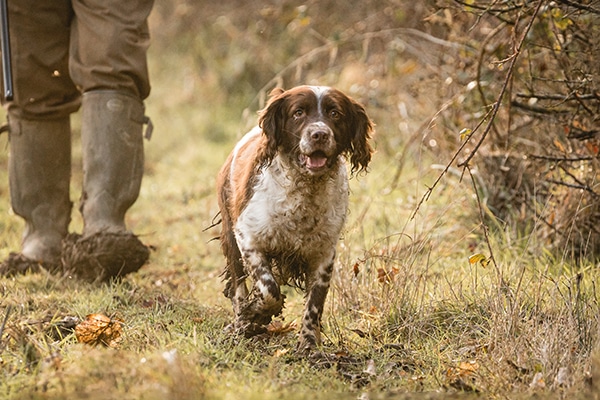
Kennel Cough
Kennel Cough is caused by a combination of highly infectious viruses and bacteria but how can you spot it?
Get information on the legal shooting season for mammals and birds in the UK.
Apply for funding for your project or make a donation today
Comprehensive information and advice from our specialist firearms team.
Everything you need to know about shotgun, rifle and airgun ammunition.
Find our up-to-date information, advice and links to government resources.
Everything you need to know on firearms law and licensing.
All the latest news and advice on general licences and how they affect you.


Tail docking or tail shortening in some working gundogs, primarily cocker and springer spaniels, and the hunt, point, retrieve (HPR) breeds, should be seen in the same light as a preventative treatment.
While not all of the pups would go on to get tail damage, the level of chronic discomfort and pain to those dogs that do become damaged is debilitating.
Modern veterinary treatments may reduce the problem of infection, inflammation and pain, but the dog appears to continue with some level of discomfort until the tail either heals completely or is amputated.
The prevention of tail damage is by tail docking pups from the working breeds that are destined for working homes in the first few days of life.
The procedure must be carried out by a veterinary surgeon, who will complete a certificate for each pup.
After thorough disinfection the tail is cut either with scissors or a scalpel blade, then the bleeding may be cauterised or the skin sutured over. The nerve supply seems very poorly developed at this age, so local anaesthetic is rarely used.
It is always quick, and the pups are returned to their littermates where they settle within seconds. Prevention of tail damage is far better than trying to treat a chronic tail injury in an adult dog.
Different laws in the devolved administrations has resulted in a level of confusion on the matter of tail docking. The breed specifics and type of work differ between England, Wales and Scotland.
The recently changed law in Scotland (June 2018) now permits ‘tail shortening by a third’ for the ‘lawful shooting of animals’. The law permits this procedure for spaniels or any mix of breeds of spaniels (i.e. sprockers) and HPR breeds and any mix of hunt, point, retrieve breeds.
The procedure must be undertaken by a veterinary surgeon on pups aged five days or less. Evidence must be produced to indicate that the puppies are intended for the ‘lawful shooting of animals’, and a certificate is required for each puppy tail docked. The dam’s microchip number is required for the certificate, and the pups may be ‘chipped’ at the same time as tail shortening.

Kennel Cough is caused by a combination of highly infectious viruses and bacteria but how can you spot it?

In recent years laws have been introduced in England, Wales and Northern Ireland restricting tail docking of dogs.

Since 2018 there have been revised regulations surrounding the breeding and selling of puppies in England.